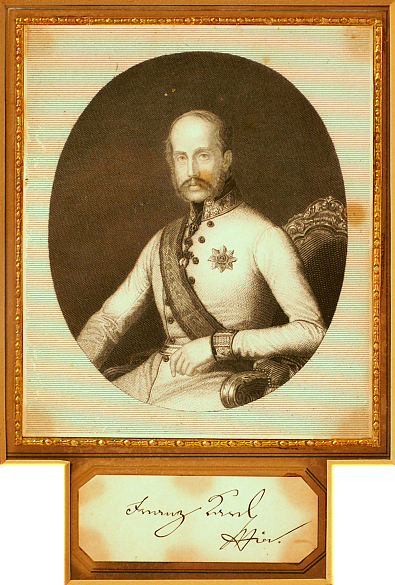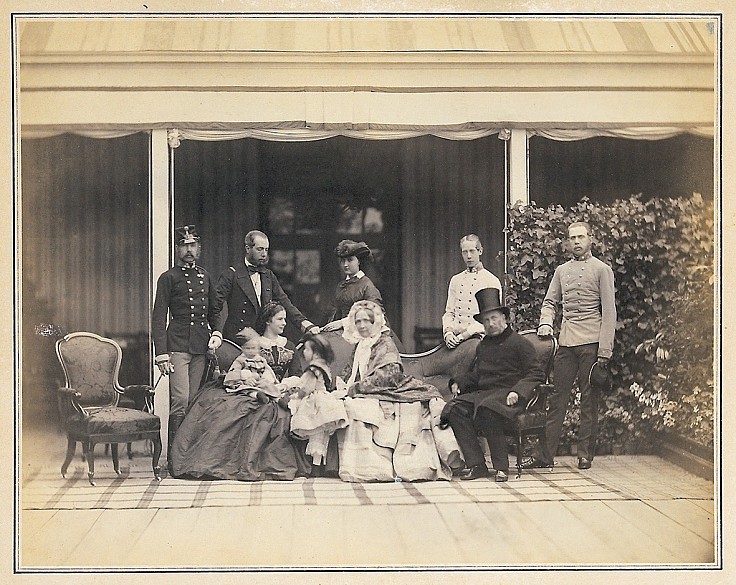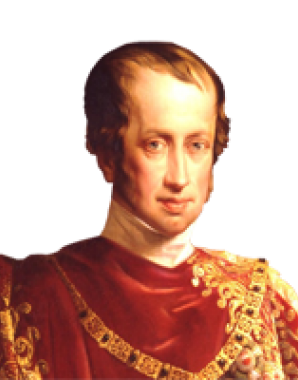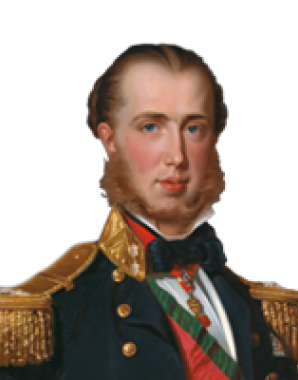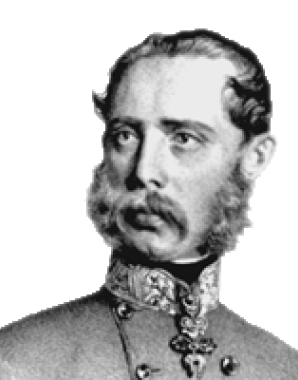Franz Karl: The Archduke in the background
The unprepossessing and mentally somewhat underendowed Archduke Franz Karl was always overshadowed by his wife Sophie. The only reason he has not disappeared entirely into the shadows of history is that he was the father of Emperor Franz Joseph.
‘He is a bon garçon, asking advice of everybody, mais il est terrible ... He would bore me to death … Occasionally I would like to beat him!’
Sophie’s account of her first encounter with her future husband Franz Karl.
Born in Vienna on 7 December 1802, Franz Karl was the third son of Emperor Franz II (I) and his second wife, Maria Teresia of Naples and Sicily. His parents were very closely related, his mother being the daughter of Franz’s aunt, Archduchess Maria Karoline, and thus a first cousin of her husband. Both parents were paternal and maternal first cousins, which even by Habsburg standards was a case of extreme inbreeding.
The union between two such closely related individuals had evidently negative effects on the mental and physical health of their offspring. The most obvious manifestation of this was the worrying condition of their first-born child Ferdinand, who was destined to follow his father on the throne. Since it was unlikely that children would be born from Ferdinand’s marriage, responsibility for continuing the dynasty lay with Franz Karl, the next-born son.
However, even Franz Karl was not very much better off: his biographers attest that his most outstanding trait was deep religious piety. Apart from this, the archduke was regarded as not very able, rather odd yet at the same time rather dull. Descriptions of the young archduke read: ‘weak in body and mind’, or ‘sweet-tempered verging on feeble-mindedness’.
It was thus all the more important to find him an energetic wife to stand by his side. The choice eventually fell on the Bavarian princess Sophie. Extremely ambitious, Sophie was at first unhappy with her mentally rather unprepossessing husband. At first it seemed as if this marriage would also remain childless, as a series of pregnancies ended in miscarriages. After six years of marriage – allegedly due to the curative properties of the spa waters at Bad Ischl – a healthy son was born and baptized Franz Joseph. Another five children were to follow.
Besides the well-known figures of Emperor Franz Joseph (1830–1916) and Ferdinand Maximilian (1832–1867), the ill-fated emperor of Mexico, the marriage also produced Karl Ludwig (1833–1896), father of the later heir apparent Franz Ferdinand and grandfather of the last emperor Karl I, together with Archduke Ludwig Viktor (1842–1919), who never married and whose homosexual proclivities and eccentric lifestyle generated much gossip.
Sophie also bore a daughter named Maria Anna (1835–1840) who suffered from debilitating epileptic seizures and died in childhood, and a still-born son (1840).
Franz Karl soon disappeared into the background behind his intelligent and politically ambitious wife. Sophie concentrated her energies on her firstborn son Franz Joseph.
When Emperor Ferdinand was persuaded to abdicate in 1848, his brother Franz Karl was technically the next in line for the succession, but was not regarded as a desirable alternative. To the great surprise of the decision-makers in the dynasty (above all Sophie) at first Franz Karl refused to sign the document renouncing his claim to the throne, which had been presumed a pure formality. Only energetic persuasion by Sophie managed to bring the archduke, who had hitherto never shown the slightest sign of ambition, to waive his right to the throne.
Archduke Franz Karl did not perform any kind of public function, but occasionally called attention to himself with his eccentricities. He died in 1878, six years after his wife. He was the last Habsburg to undergo separate interment of body, entrails and heart.
